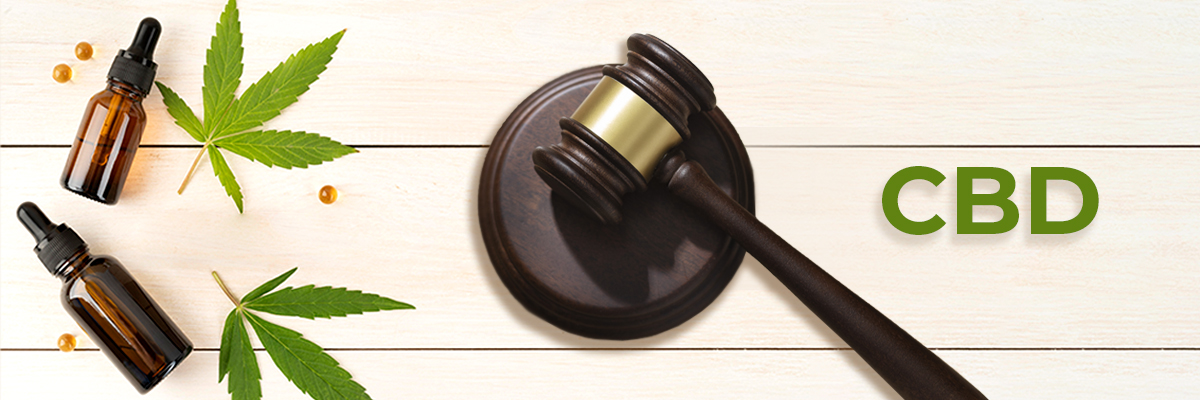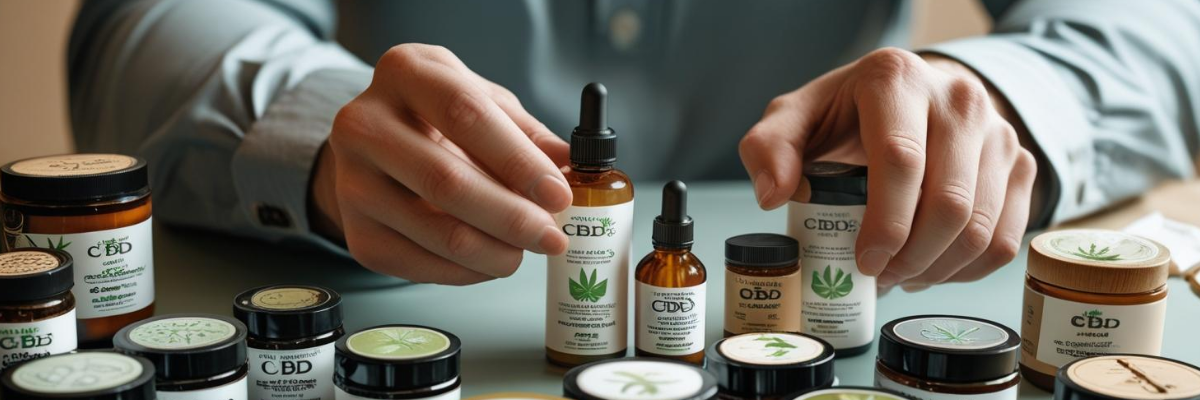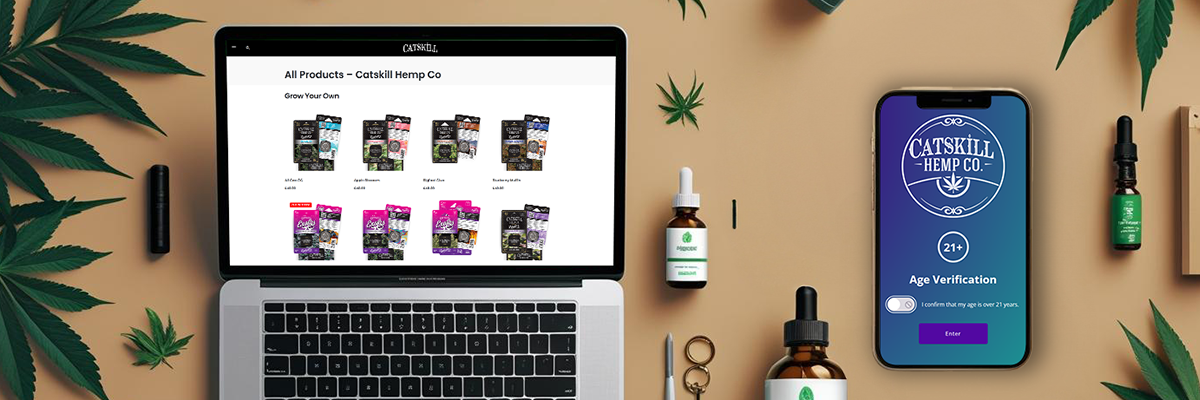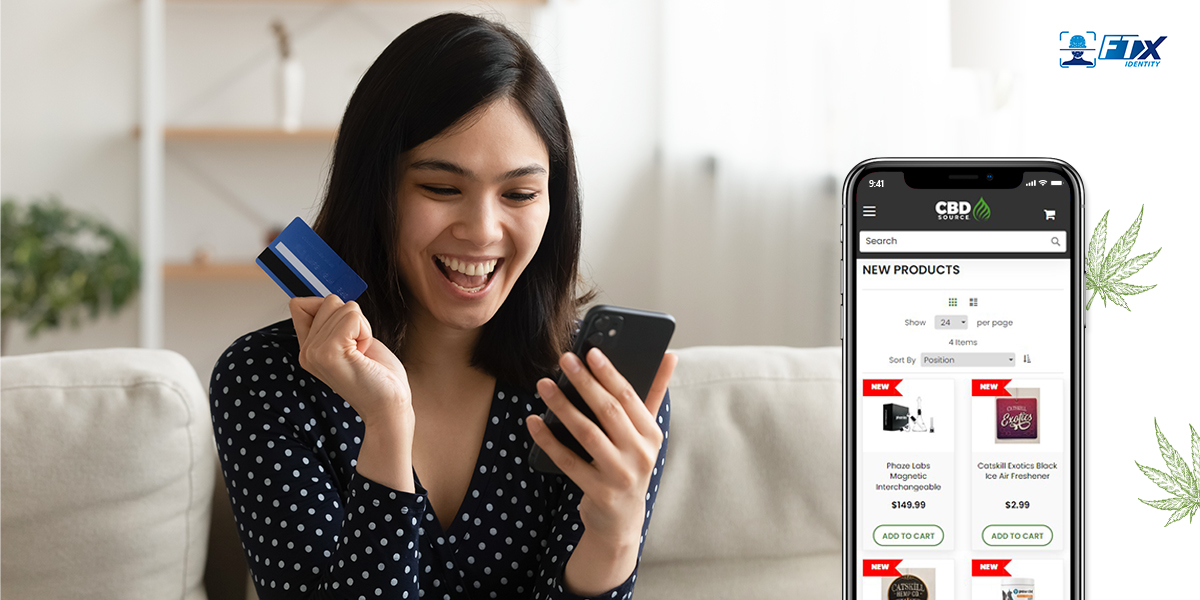The digital marketplace continues its relentless expansion, and within it, a compelling frontier has emerged: the online sale of CBD. The CBD online business arena is maturing rapidly, presenting significant opportunities for savvy entrepreneurs. You’re likely asking yourself the crucial questions: Can I sell CBD online legally? What hurdles will I face? What is the real potential here?
Let’s cut to the chase. Yes, you can navigate the world of selling CBD online, but it demands a systematic approach, a keen understanding of the regulatory environment, and the right toolkit. If you’ve explored our previous insights, you’ll know we’re advocates for clarity and empowerment in the ecommerce space. Now, as we look towards 2025, the path to successfully sell CBD products online has become clearer yet still requires careful navigation.
Let’s unpack what you need to know to rise in this dynamic market.
Following the 2023 trend of CBD becoming legal in some form across all 50 states, selling these age-restricted products online still depends on strong identity checks (Forbes).
Need a helping hand in growing your CBD business responsibly?
Top Challenges of Selling CBD Online
Venturing into the realm of CBD ecommerce isn’t without its complexities. Here are some key hurdles you’ll need to address head-on:
1. Differentiating Your Brand in a Crowded Market
The burgeoning popularity of CBD means more players vying for customer attention. Standing out requires more than just quality products; it demands a unique brand story and a compelling value proposition. How will your brand resonate with consumers amidst the noise?

2. Navigating Complex CBD Regulations
The legal landscape surrounding CBD remains intricate, with federal and state regulations often differing. Staying compliant is non-negotiable, requiring continuous vigilance and a thorough understanding of the rules of engagement.
3. Efficiently Managing Order Fulfillment
From inventory management to timely shipping, a seamless fulfillment process is crucial for customer satisfaction. This becomes particularly nuanced with the specific requirements sometimes associated with CBD products.
4. Securing Financing Amid Lender Reluctance
Traditional financial institutions can be hesitant to work with CBD businesses. Finding reliable banking and funding options often requires exploring specialized avenues.
5. Finding the Right Insurance Solutions
The perceived “high-risk” nature of the CBD industry can make securing adequate insurance coverage a challenge. Identifying providers who understand the space is essential for protecting your business.
6. Building a Reliable Payment Processing System
This is a cornerstone. Not all payment gateways readily support CBD transactions. Finding a stable and compliant CBD payment processing solution is paramount to your online sales.

Is It Legal to Sell CBD Online? Here’s the Truth
The question of legality is often the first and foremost for those looking to enter the CBD online arena.
Yes, it is federally legal to sell hemp-derived CBD products online, thanks to the 2018 Farm Bill. This bill federally legalized hemp, defined as cannabis with less than 0.3% Delta-9 THC on a dry weight basis. However, the landscape isn’t entirely uniform.
Looking ahead to the 2025 update on the U.S. Farm Bill status, it’s crucial to stay informed about any potential changes that could impact the industry.
- Federal vs. state laws: While federal law provides a baseline, state laws regarding CBD can vary significantly. Some states have embraced CBD more openly, while others have stricter regulations. Understanding the specific laws of the states you intend to sell to is vital.
- Legal definition: hemp-derived vs. marijuana-derived: Remember the distinction. Hemp-derived CBD (less than 0.3% THC) is federally legal. Marijuana-derived CBD (higher THC content) is subject to state laws regarding cannabis. When you sell CBD products online, ensure clarity about their origin.
Also, you may be required to verify age to stop minors from purchasing age-restricted products.
Identifying Your Niche and Selecting CBD Products to Sell
Before you even think about setting up your digital storefront, understanding the market and your potential product offerings is crucial.
1. Market Research
The CBD market is diverse. Currently, we see strong trends in products like CBD oils and tinctures, convenient and discreet edibles (gummies, chocolates), and targeted topicals (creams, balms). Notably, there’s a growing interest in niche areas such as CBD for pets and wellness-focused formulations targeting sleep, anxiety, and pain relief. Analyzing these trends will help you identify potential gaps and opportunities. What specific needs can your brand address?
2. Product Selection
Quality is paramount in the CBD industry. Your reputation hinges on offering high-quality, lab-tested products. Transparency is key; customers want to see Certificates of Analysis (COAs) confirming the cannabinoid content and the absence of harmful contaminants. When selecting products to sell CBD online, prioritize sourcing from reputable suppliers who adhere to rigorous testing standards.
3. Wholesale Opportunities

Exploring cannabidiol wholesale partnerships can be a strategic move. This allows you to access a wider range of products without the complexities of in-house manufacturing. Carefully vet potential wholesale partners to ensure their product quality and compliance standards align with your brand.
Set Up Your CBD Ecommerce Store the Right Way
Your online store is the digital face of your business. It needs to be user-friendly, trustworthy, and equipped to handle the specific needs of selling CBD.
When it comes to CBD ecommerce platforms, you have several options. However, for a seamless and compliant experience, consider FTx Commerce. Its features are specifically designed to cater to businesses like yours, offering robust inventory management, secure checkout processes, and integrations crucial for the CBD space.
Discover the power of a unified online store using advanced age checks with FTx Commerce!
Unlike some generic platforms, FTx Commerce understands the nuances of the CBD industry. It often comes with built-in features or readily available integrations that address age verification – a critical aspect when selling CBD online. While some platforms might have restrictions or require workarounds for CBD-related functionalities, FTx Commerce is built with these considerations in mind.
Be mindful of a platform’s stance on CBD payment gateways. Some platforms might integrate more smoothly with CBD-friendly processors than others. FTx Commerce is designed to facilitate these integrations.
What to include on your CBD product pages:
- Clear and accurate product descriptions, including ingredients and usage instructions.
- Third-party lab test results (COAs) readily accessible.
- Potency information (mg of CBD per serving/container).
- Clear pricing and available sizes/variations.
- High-quality product images.
- Customer reviews (once you have them).
- Any necessary disclaimers or warnings.
By focusing on creating a professional and informative CBD ecommerce website, you build trust with your customers.
CBD Payment Gateways, Merchant Accounts & Processing Solutions
The world of CBD payment processing can seem like a maze, but understanding its nuances is essential for a functional online store.
The CBD industry is often categorized as “high-risk” by many traditional financial institutions due to regulatory uncertainties and perceived risks. This classification can make securing standard merchant accounts challenging. As a result, you’ll likely need to work with specialized providers who understand the CBD landscape.
Some popular options in the CBD merchant processing space include:
- Square: While Square has become more open to CBD businesses, their terms and conditions should be carefully reviewed.
- PaymentCloud: This provider specifically caters to high-risk industries, including CBD, and often offers tailored solutions.
- Other specialized processors like PayKings and eMerchantBroker also serve the CBD market.
Shipping, Fulfillment & CBD Product Logistics
Getting your products to your customers efficiently and compliantly is the next critical piece of the puzzle.
Shipping CBD products comes with its own set of considerations. There can be shipping restrictions by state/carrier. For example, while hemp-derived CBD is federally legal, some states might have specific regulations regarding its shipment. Major carriers like USPS, FedEx, and UPS have their own policies, which can evolve. It’s crucial to stay updated on their guidelines. To answer the FAQ: While USPS may allow the shipping of certain hemp-derived CBD products, it comes with strict regulations. Similarly, FedEx and UPS have their own specific rules. Always verify their current policies before shipping.
For CBD fulfillment solutions, you have a few options:
- ShipBob: They have experience working with CBD businesses and can handle warehousing, packing, and shipping.
- Custom warehouses: Depending on your scale, you might opt for a dedicated warehouse that understands the specific needs of CBD product storage and handling.
Dropshipping CBD – can it be done legally? Yes, dropshipping CBD is possible, but it requires even greater due diligence. You need to ensure that your suppliers are reputable, their products are compliant, and that the shipping processes adhere to all applicable regulations. You’re entrusting a significant part of your operation to a third party, so thorough vetting is crucial.

CBD Marketing & SEO Strategies That Actually Work
Once your store is set up, you need to attract customers. Effective marketing of CBD online requires a nuanced approach, given the restrictions on traditional advertising platforms.
1. CBD SEO
- On-page tips: Optimize your product pages and website content with relevant keywords like “CBD oil,” “CBD gummies,” and “hemp products.” Ensure your meta descriptions and title tags are compelling and keyword-rich.
- Blogging: Create informative and engaging content related to CBD, its benefits, and your products. This helps attract organic traffic and establishes your brand as a knowledgeable resource. Focus on keywords like “seo for cbd.”
- Link building: Earn high-quality backlinks from reputable websites in the health, wellness, and cannabis industries to boost your site’s authority.
2. Email marketing
Build an email list and nurture your leads with valuable content, product updates, and promotions. Email marketing is a powerful tool to retain customers and drive repeat purchases.
3. Influencer marketing
Collaborate with influencers in the wellness and lifestyle niches who can authentically promote your CBD products. Ensure they understand and adhere to legal guidelines regarding CBD promotion.
4. Paid advertising
Be aware that major platforms like Meta and Google often have strict policies against CBD advertising. However, explore alternative options such as:
- Reddit: Some CBD advertising is permitted, but with specific guidelines.
- Native ads: These ads blend in with the surrounding content on websites and can be an effective way to reach your target audience.
5. Social commerce
While platforms like Instagram have restrictions on direct CBD sales through features like Shops, you can still use these platforms for branding and directing traffic to your website. TikTok also generally prohibits CBD advertising and sales.
Developing a strong CBD branding strategy that resonates with your target audience is crucial for long-term success.
Tools, Apps & Software to Run Your CBD Online Store

Running a successful online CBD store in 2025 means leveraging the right digital allies. Think beyond just a basic ecommerce platform; it’s about building an ecosystem that streamlines operations and enhances your customer’s experience. Just like the top players in ecommerce highlight the power of apps and integrations, let’s explore the must-haves for your CBDl business.
Consider the foundational apps that can elevate your day-to-day: seamless inventory management to prevent stockouts and keep your product catalog accurate, subscription services to foster customer loyalty and predictable revenue, and loyalty programs to reward your returning clientele and build a thriving community around your brand.
For those looking to bridge the online and offline worlds, FTx POS integration with FTx Commerce offers a unified system to manage sales, inventory, and customer data, no matter where the transaction occurs. Imagine a central hub for your entire CBD retail operation.
But in the CBD space, certain tools aren’t just convenient—they’re crucial for compliance and trust. This is where we step in. Navigating the regulations around who can purchase CBD online is paramount.

How Online Age Verification Works for CBD Shops
A streamlined online age verification process ensures your business stays compliant but also that the customer experience is user-friendly. A process that’s too complex can cause online ID verifications to fail and will leak customers out of the ecommerce process.
Depending on the service that you use, the online age verification process might look like this for a CBD shop:
Without any documentation, visitors may see a pop-up requesting them to verify their age when they access your website. “Age gates” may not always be successful in keeping minors away.
If required, image verification can be used to verify CBD products online. However, some businesses maintain sizable databases and use credit bureaus, making it possible to speed up ecommerce checkouts and boost conversion rates.
To make sure the appropriate individual is making purchases for current customers, age verification may also require the use of a CBD ID verification number.
The latest AI verification methods make this process easier and faster for customers.
Scaling Your CBD Business: Growth and Expansion Strategies
Once you’ve established a solid foundation, it’s time to think about growth.
- Analyzing performance metrics: Track key metrics like website traffic, conversion rates, customer acquisition cost, and customer lifetime value to identify areas for improvement.
- Launching new product lines: Expand your offerings based on market trends and customer feedback.
- Getting featured in online marketplaces: Explore opportunities to sell your products on curated CBD marketplaces.
- Using customer reviews and UGC for social proof: Encourage customers to leave reviews and share their experiences with your products.
- Exploring B2B and white-label options: Consider selling wholesale to other businesses or offering white-label CBD products.
Building a Sustainable and Compliant CBD Online Business
The journey to successfully sell CBD online in 2025 requires diligence, adaptability, and a commitment to compliance. By understanding the legal landscape, choosing the right tools, and implementing effective marketing strategies, you can build a sustainable and thriving business. Stay informed about the evolving regulations and continue to prioritize quality and transparency.
Start Selling CBD Online With CONFIDENCE!
Discover the tools, tips, and legal steps you need to thrive in the growing CBD eCommerce landscape. Navigate regulations, build trust with identity checks, and unlock your business’s true potential.
